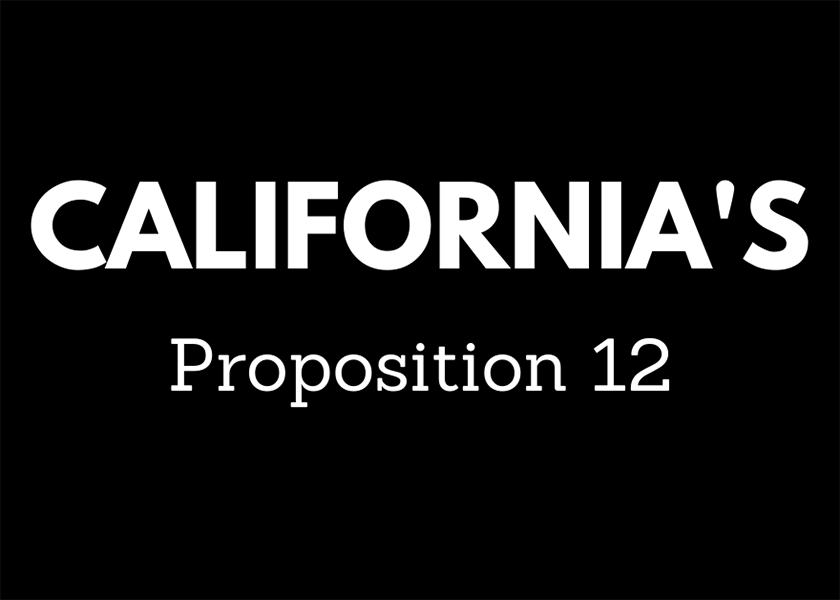Supreme Court Rejects Meat Institute’s Petition to Review Proposition 12

The Supreme Court has denied a petition to review California’s Proposition 12, which requires the sale of meat products in California to conform with the state’s animal housing standards.
Prop 12, set to go into effect on Jan. 1, 2022, will impose animal housing standards that reach far outside the state’s borders to farms across the country, driving up costs for both pork producers and consumers, the National Pork Producers Council (NPPC) said in a release.
The denial of the petition for a writ of certiorari was among dozens announced on June 28 by the court. No explanation was provided for the reason why the petition was denied. The North American Meat Institute (Meat Institute) filed the petition, with the support of 20 states, challenging the sales ban in California on veal and pork not raised according to Prop 12’s housing standards.
“We are disappointed our petition for cert was denied. We will be considering other options to block Proposition 12 which will cost both producers and consumers millions of dollars according to economists and the state of California’s own analysis,” Meat Institute spokesperson Sarah Little said in a statement.
Prop 12 is currently being challenged in a separate lawsuit from the National Pork Producers Council and the American Farm Bureau Federation, asking the court to strike down Prop 12 as unconstitutional under the dormant commerce clause. The U.S. Court of Appeals for the Ninth Circuit heard oral arguments in April and is expected to make a decision in mid-July.
“Prop 12 hurts the family on a budget by causing higher prices for pork, veal and eggs, and unfairly punishes livestock producers outside of California by forcing them to spend millions just to access California markets,” Meat Institute President and CEO Julie Anna Potts said in a March release. “If this unconstitutional law is allowed to stand, California will dictate farming practices across the nation.”
Read More:
Pork Industry Braces for Catastrophic Costs to Implement Proposition 12
Proposition 12 Pressures Aren’t Going Away
On-Demand Webinar: Proposition 12: Where Do We Go From Here?
20 States Back Challenge to the Constitutionality of California’s Prop 12
California’s Proposition 12 Would Cost U.S. Pork Industry Billions
New Briefs Filed in Support of NPPC’s Proposition 12 Lawsuit
Pork Industry, Don’t Underestimate Proposition 12
Court Upholds California Proposition 12
California’s Proposition 12: NPPC, AFBF Seek to Strike as Invalid







